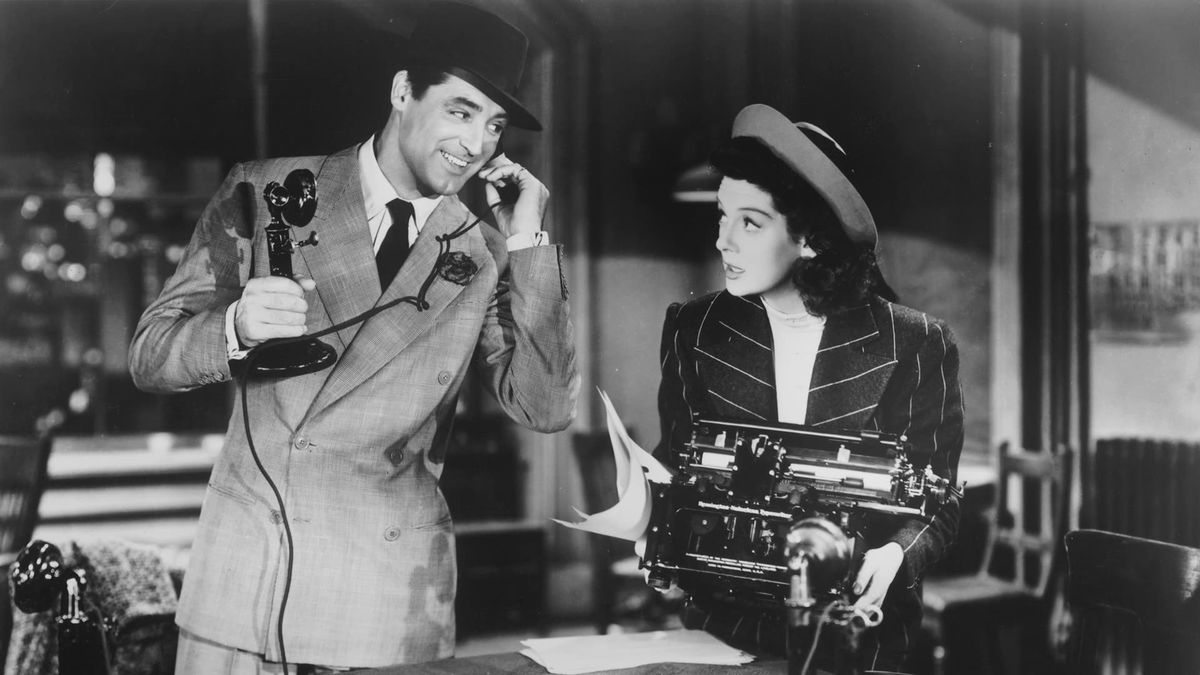Cinema & Politics – Film programme and Discussions

Stanley Cavell, one of the most original American philosophers of the 20th century, dedicated a significant part of his career to thinking about the cinematic experience as a legitimate site for philosophy. In his book Pursuits of Happiness: The Hollywood Comedy of Remarriage, Cavell argues that certain romantic comedies from 1930s and 40s Hollywood — the so-called remarriage comedies — are not merely lighthearted love stories, but true meditations on marriage, recognition, and shared life in the modern world.
Unlike conventional romantic comedies, remarriage films begin with a couple already separated or in the process of separation. The plot does not revolve around the initial meeting but around the possibility of reunion — the rebuilding of intimacy after failure. Marriage, from this perspective, is not a happy ending but a starting point for an ongoing process of mutual understanding. For Cavell, these films are direct heirs of the Shakespearean comedy of manners — such as Much Ado About Nothing, As You Like It, or Twelfth Night, among others — and they function as ethical laboratories for rethinking love in modernity.
Cavell’s analysis begins with the concept of recognition. To love someone, he suggests, is not merely to feel something for the other, but to see and accept them as they are — and to allow oneself to be seen in return. This dynamic of recognition is close to the Hegelian dialectic, but in Cavell’s case, it is filtered through a sensibility deeply shaped by Wittgenstein and the philosophy of language. Love requires language, listening, play, and risk. It is an existential adventure, not a prefabricated romantic solution.
His Girl Friday (Howard Hawks, 1940), the film that inaugurates this programme, is one of the most brilliant examples of what Cavell proposes. Set in a newspaper office, the film transforms the workplace into the stage for a romantic duel. Hildy Johnson (Rosalind Russell), a brilliant reporter, wants to leave journalism and remarry. But her ex-husband and editor, Walter Burns (Cary Grant), devises a plan to win her back: offering her one last big story — an exclusive interview with a man on death row.
This game of manipulation and seduction unfolds at a dizzying pace, with razor-sharp dialogue that reveals a relationship based on extraordinary intellectual parity. Hildy is not a “woman in search of a husband”, but a professional fully aware of her choices. What’s at stake is not just romance, but the possibility of a shared life that respects the desire, vocation, and freedom of both partners. Comedy here does not serve to ease tension, but to intensify it — it is the medium through which relational truth becomes visible.
According to Cavell, “remarriage” is a powerful metaphor: to love is to decide — and to decide again, to create again, to love once more. These films teach that falling in love once is not enough; it’s necessary to start over continuously. Love is not about yielding to a formula or repeating an ideal, but risking oneself in a process where the other is never guaranteed, and where language — what we say and don’t say — plays a central role. What is at stake is the possibility of building, within human fallibility, a shared form of life.
This cycle thus proposes a philosophical lens on popular cinema, revealing within its classical forms a profound reflection on ethics, affection, and recognition. Through Cavell’s study, cinema reveals itself as a space of living thought, where the search for a common life is pursued with humor and intelligence.
Consulted edition: Stanley Cavell, Buscas da Felicidade — A Comédia de Recasamento em Hollywood (Imprensa da Universidade de Lisboa, 2022)
Film screening + discussion
HIS GIRL FRIDAY
1940 | 1h32
By Howard Hawks
When a newspaper editor’s ace reporter ex-wife is about to quit her job and remarry, he buys himself time to win her back by promising her an exclusive interview with a death row convict.
Friday, May 23 | 19h30
Prosa Plataforma Cultural
Free entry
Presentation (in Portuguese) by Alexandre Braga (CineLab / Prosa)
(Original sound in English with Portuguese subtitles.)
All films at Cinema Prosa will be screened on an illuminated pixel display (65’’ QLED screen) in a room limited to a maximum of 24 spectators.
The programme Cinema & Politics – Film programme and Discussions (2025) is organized by Alexandre Braga and the research group Cinema & Politics: Philosophical Approaches, within the scope of the activities of the Laboratory of Cinema and Philosophy (CineLab).

